MDT prides itself on the development and continued education of our professional resources.
Because of this, we are able to offer you the best talent with the following certifications.
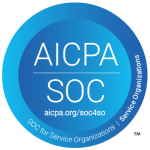
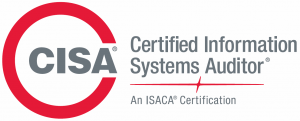
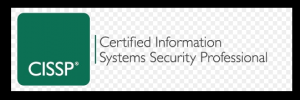
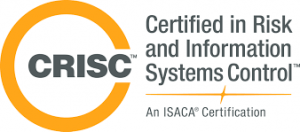
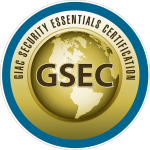
Internal Audit, Compliance, and Security
A BSACS is knowledgeable in the Bank Secrecy Act and all related anti-money laundering and OFAC regulations, including Patriot Act regulations.
The Certified Information Systems Auditor (CISA) is an industry certification in the field of audit, security and control of information systems. CISA has been a globally accepted certification standard since 1978 that’s designed to demonstrate competence in the fields of IT audit, IT security, IT risk management and overall IT governance.
The vendor-neutral CISSP certification ensures security leaders have a deep knowledge and understanding of new threats, technologies, regulations, standards, and practices and that they have the ability to manage their overall information security program to protect organizations from growing sophisticated attacks.
Certified in Risk and Information Systems Control (CRISC) is a certification that validates an individual’s skills in the fields of information system control and risk management. CRISC is designed for individuals that help businesses in implementing information system controls and mitigate business risks.
A CUCE understands Credit Union compliance regulations and their implications and can help Credit Unions tackle compliance issues.
This certification is for Security Professionals qualified for IT systems hands-on roles with respect to security tasks.
This certification focuses on the knowledge and skills required to identify risk, to participate in risk mitigation activities, and to provide infrastructure, application, information, and operational security.
MDT has completed the SSAE 18 SOC 1 and SOC 2 reviews, and we continue to build our entire service management approach around industry-standard best practices. The SSAE 18 provides an objective assessment of a company’s internal operations, and a properly conducted SSAE 18 audit provides assurance that the right controls are in place to protect a financial institution’s data, maintain availability, protect privacy, and accurately process payments. SOC Reports help determine vendor reliability, which is essential in an environment where regulators expect credit unions to be just as responsible for activities outsourced to a vendor as they are their own.
For more information: https://www.aicpa.org/interestareas/frc/assuranceadvisoryservices/serviceorganization-smanagement.html
Information Technology
The CCNA Data Center certification provides the confidence needed to install, configure, and maintain data center technology. It includes knowledge of data center infrastructure, data center networking concepts and technologies, storage networking, unified computing, network virtualization, data center automation and orchestration, and Cisco Application Centric Infrastructure (ACI).
The CCNP Data Center certification focuses on the data center solutions, technologies and best practices to design, implement, and manage a modern data center infrastructure. CCNP Data Center certified professionals are highly qualified for senior roles chartered with enabling digital business transformation initiatives.
This certification covers the skills required to install and configure PC operating systems, as well as configuring common features (e.g. network connectivity and email) for mobile operating systems Android and Apple iOS.
This vendor-neutral networking certification validates the essential knowledge and skills needed to confidently design, configure, manage and troubleshoot any wired and wireless networks.
The MCP validates IT professional and developer technical expertise through rigorous, industry-proven, and industry-recognized exams. MCP exams cover a wide range of Microsoft products, technologies, and solutions.
This certification is the industry standard for demonstrating competence in managing and troubleshooting network environments based on the Windows Server 2003 operating systems. The MCS certification is especially relevant for: systems administrators, network administrators, information systems administrators, network operations analysts, or network technicians.
This certification focuses on the skills needed to run a highly efficient and modern data center, with expertise in cloud technologies, identity management, systems management, virtualization, storage, and networking.
Earners of this certification have demonstrated core software development skills and fundamental technical concepts with Microsoft based programming tools.
The NPP certification confirms the candidate’s ability to install, configure, and manage the Nutanix environment.
Graduates of the program use this knowledge to support Synergy at their office and to interface with Synergy Customer Support.
Professional
This certification lets the student analyze their interpersonal communication skills and further expand competency through application in personal and professional life situations. The student also examines the impact of technology, gender, non-verbals, and cultural diversity on communication in families, with friends, and in their professional lives.
This certification is designed for frontline service delivery professionals. It improves participant’s knowledge of the citizen-centered approach, leading to improved service quality.
Qualified accountants that have passed the Uniform Certified Public Accountant Examination and is licensed to provide accounting services directly to the public.
CCSPs have a core understanding of Citrix – their solutions, vision, strategy and the value that Citrix brings to the customer.
The CGMA designation distinguishes professionals who have advanced proficiency in finance, operations, strategy and management.
The trainer certification process prepares a designated employee to effectively and confidently train the CUNA Creating Member Loyalty™ process. These 5-day sessions provide the content clarity, practice and one-on-one coaching designed to produce measurable results in a credit union.
This certifies that front-line technical support professionals possess the knowledge and skills required to provide quality service and support while ensuring they understand service management processes and best practices.
The PMP is the gold standard of project management certification and validates a person’s competence to perform in the role of a project manager, leading and directing projects and teams.
The Jack Henry VIP gives third-party vendors direct access to Jack Henry technical resources to achieve product integration with core platforms.
Real Estate Brokers are licensed to manage their own businesses. Brokers, as independent business people, often sell real estate owned by others. In addition to helping clients buy and sell properties, they may help rent or manage properties for a fee. Many operate a real estate office, handling business details and overseeing the work of salespeople.




